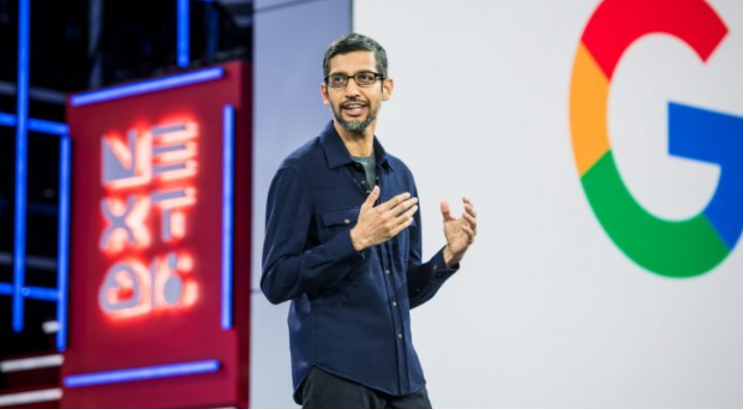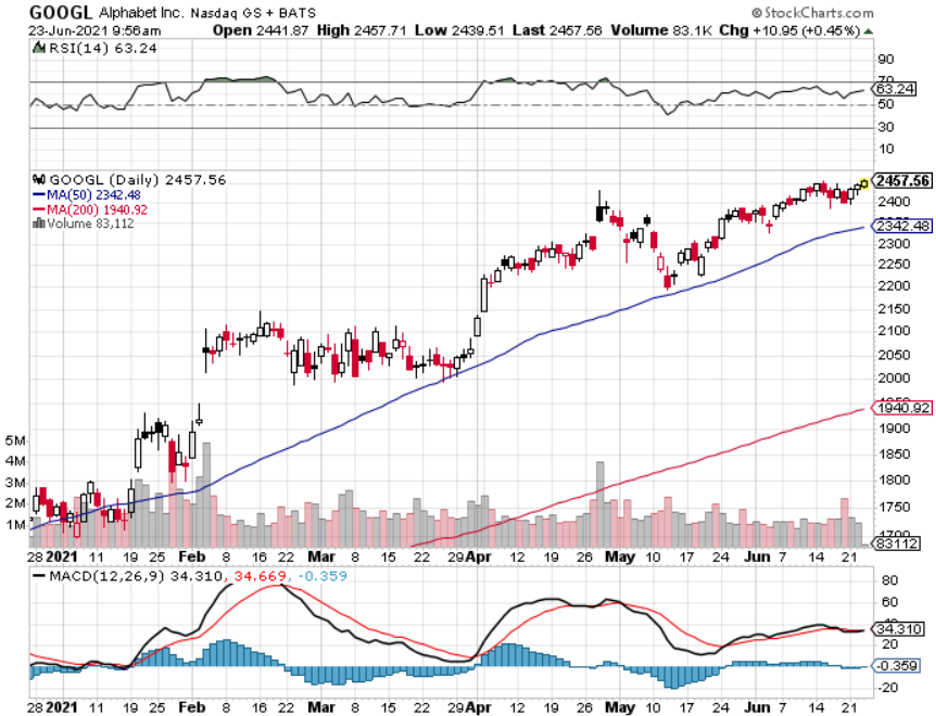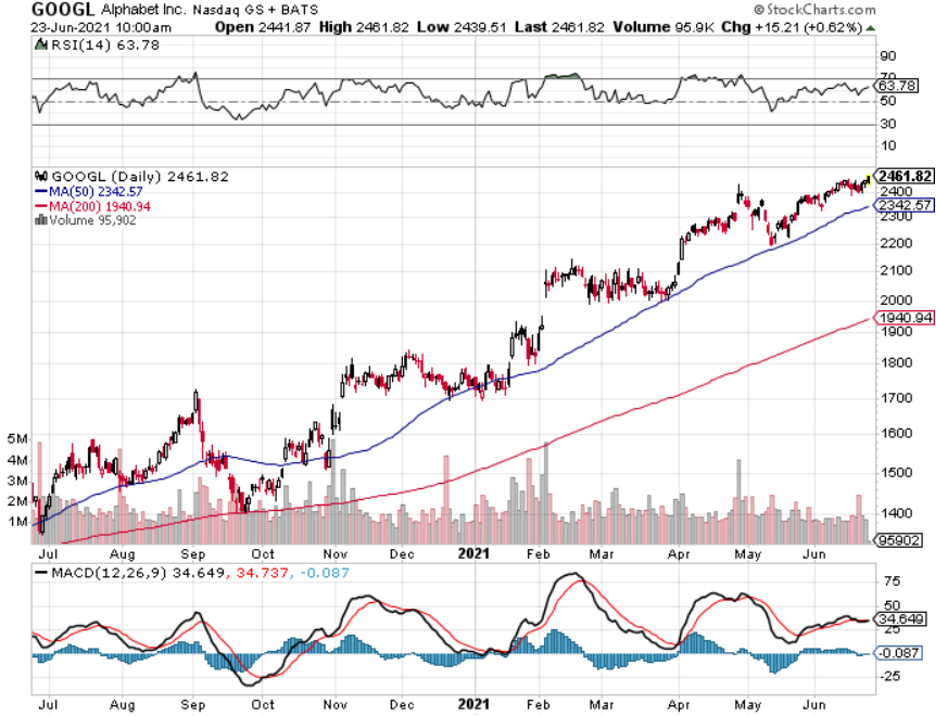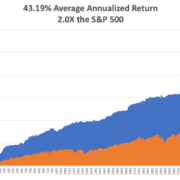Ignore the Google Complaints
The five largest tech companies last Fall 2020, Apple, Microsoft, Amazon, Alphabet, and Facebook, accounted for 23.8% of the S&P 500 and now that figure has surpassed 25%.
As much as we like to bring out the champagne and celebrate how well big tech has done, the euphoric times often lay the groundwork for the dramatic downfall.
A few warning signs have started to rear their ugly head.
These business models are rock-solid now, but that doesn’t mean the people who manage these business models are always rock-solid too.
Today, I would like to zone in on one of the architects of big tech that have taken one of these behemoths and juiced it up for shareholders — Alphabet CEO Sundar Pichai.
I am not arguing that returning capital to shareholders is bad, but when other critical elements are ignored, it sets the stage for toxicity to fester from the top down.
Don’t get me wrong, revenue and profits are charting new highs every three months for Alphabet.
They are now worth $1.67 trillion and rising. Google and its array of apps have made themselves indispensable in the lives of everyday Americans.
But an increasingly hostile workplace is taking hold that has been made worse by decisive leadership and improving the company has been shelved for a stultifying mindset of incrementalism and bureaucracy.
This is the 2021 version of Alphabet and attrition rates have soured at the management level.
Many of these key managers blame Pichai for leaving mentioning a bias toward inaction and a fixation on public perception as the real mantra inside Google headquarters.
This has created a workplace that has devolved into culture fights, and Pichai’s attempts to “wait out” the problems have an air of arrogance about it that employees don’t like.
Internal surveys are also hard to analyze as employees are indirectly encouraged not to speak out against positions of authority.
However, recently left employees do admit that Google is a more professionally run company than the one Pichai inherited six years ago.
During Pichai’s leadership, it has doubled its workforce to about 140,000 people, and Alphabet has tripled in value. It is not unusual for a company that has grown so quickly to get cautious.
At least 36 Google vice presidents have left the company since last year, according to profiles from LinkedIn.
Google executives proposed the idea of acquiring e-commerce firm Shopify as a way to challenge Amazon in online commerce a few years ago.
Rumor has it that Pichai was turned off by the high price of the asset even though SPOT has tripled in value since then.
As time goes by, Pichai is becoming known as the steward of what Google built before he got there and just a guy there to squeeze out the numbers.
Google was once known as the scruffy start-up and it’s only natural that it has become more conservative in its approaches. They simply have more to lose now.
The meteoric growth has also led to rising concerns about the U.S. stock market becoming increasingly concentrated in a just a few names.
The total market capitalization of U.S. tech stocks reached over $11 trillion, eclipsing that of the entire European market—including the UK and Switzerland, which is now valued at $9 trillion.
Although there are some flaws popping up in Google’s business model, and management appears to be getting worse, I don’t believe we are even close to any sort of in-house meaningful reckoning that would adversely affect its share price.
The external risks are currently far greater than the risk of Google blowing up from the inside.
And while I do acknowledge, it might not be the workplace it once was and much less than ideal, it still pumps out record earnings and the degree to which it outperforms earnings’ expectations is uncanny.
That’s why I would recommend trading this stock aggressively in the short-term while rumors of broken management model are unfounded, because fundamentally and technically, it’s hard to find a better business model and more beautiful chart.
While the golden goose is feeding you eggs, you eat as many eggs as you can and ride this trade until Google management finally runs into REAL problems and I am not talking about petty anti-trust fines by European regulators.
Simply put, even the best companies run into vanity problems that are storms in teacups. Artificially creating problems sure has to be a first world problem and until there is true evidence that Google’s ad tech is being dismantled, I don’t believe investors have anything to worry about with the ad dollars coming in.
Big tech is on the verge of breaking out after being range-bound, and it would be daft to overthink this move and not participate in the melt-up.
Short-term, I would be inclined to buy on any big or little dip in GOOGL, take profits, and wait for the next dip to get back into the same position.






